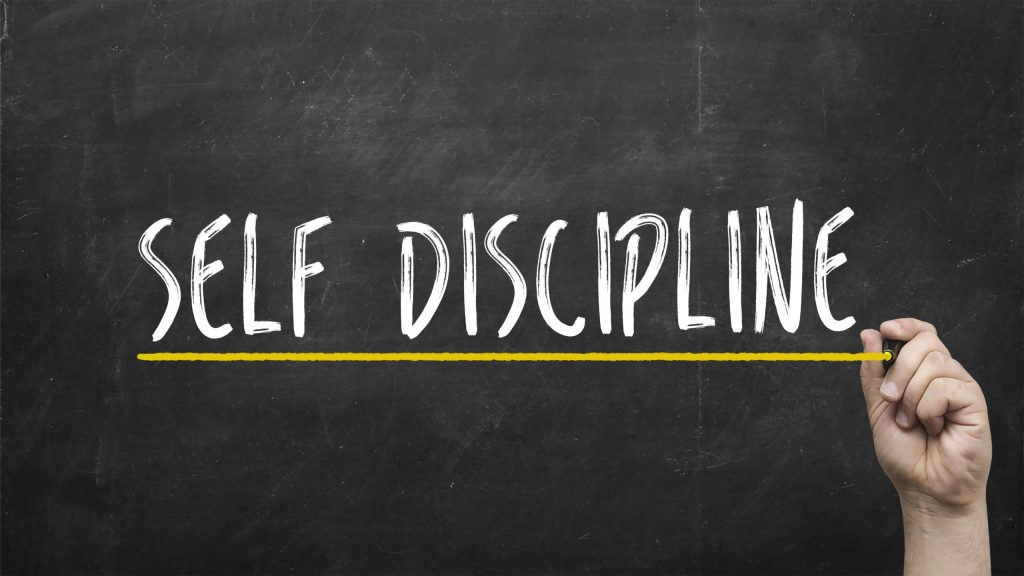
Think of self-discipline as something that can benefit you in many ways.
I like to think of it as a life skill that one practices, an attitude I have towards my strengths, a mindset you can cultivate about things you can control versus those that you cannot, and also as a privilege to use your brain to observe, think, learn, and make decisions about what you want to do in your life.
Self-Discipline: What are the most effective ways to develop it?
Boost your focus as soon as you wake up.
Like any other kind of lifestyle, leading a self-discipline life starts when you start the day in the morning. That’s the time when you set the tone to the next 12–16 hours of your life.
You can choose to be reactive, which can mean you wake up, get your phone, and start checking emails, Twitter, or Instagram. You might watch the news and get caught up in world events, none of which you can control.

Or, you might answer calls or respond to text messages that your friends start sending you during breakfast. If you’d like to create a different beginning to your day, get proactive by training your brain to be focused as soon as you wake up.
Self-Discipline: How do you achieve this?
Start your day with this question: “What is the one thing I am committed to completing today?” Put it in writing. Write it in large letters on a sheet of paper and hang it on your bedroom or bathroom wall.
Read it out loud as you start your day, for example as you’re brushing your teeth. Come up with an answer on the spot and answer it out loud. Then follow up by taking action, focus your energy throughout the day to completing your one thing.
Start your day with this question: “What is the one thing I am committed to completing today?” Put it in writing. Write it in large letters on a sheet of paper and hang it on your bedroom or bathroom wall.
Dedicate your mornings to important work.
You can say a lot of things to describe a self-disciplined life, but being spontaneous in how you go about your day isn’t going to be one of them. There’s time for spontaneity, and then there’s time to do what you need to do. In other words, timing, just like in most other aspects of your life, is everything.
Being self-disciplined means you do your hard work first before you do anything for pleasure. It means you are aware of which times of day should be devoted to doing hard work, and which times can be allotted to entertainment and socializing.
Self-Discipline: How do you achieve this?
Make the most of your mornings by building a habit of doing your hard work early. This means taking full advantage of your circadian rhythm.
For most people, the early morning hours are optimal for doing deep work—work that requires a lot of concentration. Specifically, the mind’s peak performance is 2-4 hours after we wake up.
So if you wake up at 6, then your peak times are between 8 and 10 a.m. working early allows your mind to focus fully on the problem at hand.

Make the most of your mornings by building a habit of doing your hard work early. This means taking full advantage of your circadian rhythm.
Delay what feels good.
If doing hard work early helps you focus better, the natural side effect of self-discipline is that you start postponing things that are more pleasurable.
What’s the point of doing something difficult first in order to reward yourself later? You’d be surprised how far-reaching this practice can be.
In a study performed by Stanford University scientists, results showed that delayed gratification can increase your chance at succeeding in many areas of your life; your education, career, short and long term goals, even your personal life choices. This study is now famous and is called the Marshmallow experiment.
Self-Discipline: How do you achieve this?
Start by observing the things you’d like to indulge in whenever the opportunity presents itself. Then, resist the temptation to immediately choose to treat yourself by thinking of one reason why not to indulge: maybe you’re starting off the New Year with new fitness goals or better eating habits.
And follow up, take your attention away from the distractions and focus on your priorities for the day: completing your homework, going out for a run, listening to music, or preparing food.
Say no to what distracts you.
Leading a self-disciplined life means that you learn to say no to many different things: giving in to temptations to indulge in pleasant activities, curbing your desire to procrastinate on daily priorities, and not letting distractions take over your day.
They may seem harmless to begin with, but distractions can easily make you slip from your work. One minute you’re just catching up with an old friend on WhatsApp, and the next thing you know its two hours later and you haven’t picked up your notes to start prepping for your exams. When you turn off what distracts you, you have a better chance to actually get stuff done.
Self-Discipline: How do you achieve this?
Set your phone to Airplane mode when you need to focus on your work. Try it for a 2-hour period to in the beginning. Let people around you (family members, friends, or roommates) know you won’t be available in the next few hours.
Check your email and social media apps at certain intervals only 2–3 times a day. Avoid browsing the Internet or reading news throughout the day, and close all tabs in your browser so you’re not tempted to Google something every few minutes.
Practice Self-Discipline: Come up with 3 things you are grateful for.
There’s a lot of negativity people bring into their daily lives when they compare themselves constantly with other people. Why can’t I do what he did? How am I not that successful?
This way of thinking is disempowering and limiting. Practicing gratitude can rewire our brain to think about positive things (the things that we do have going for us) instead of obsessing about everything we don’t have that only leaves us feeling frustrated and unhappy.
Self-Discipline: How do you achieve this?
Do it early so you can feel the effects throughout the day. Take a few minutes when you wake up and before you start getting ready for work or school.
Focus only on three things you are grateful for today, having a warm bed to sleep in, a roof over your head, a job that pays the bills, a friend or a partner who you trust, or a dog or cat that you have as your pet. Be specific.
If it’s one person you are grateful for having in your life, emphasize which of their qualities you are grateful for: they are warm, smart, funny, honest, and so on.





